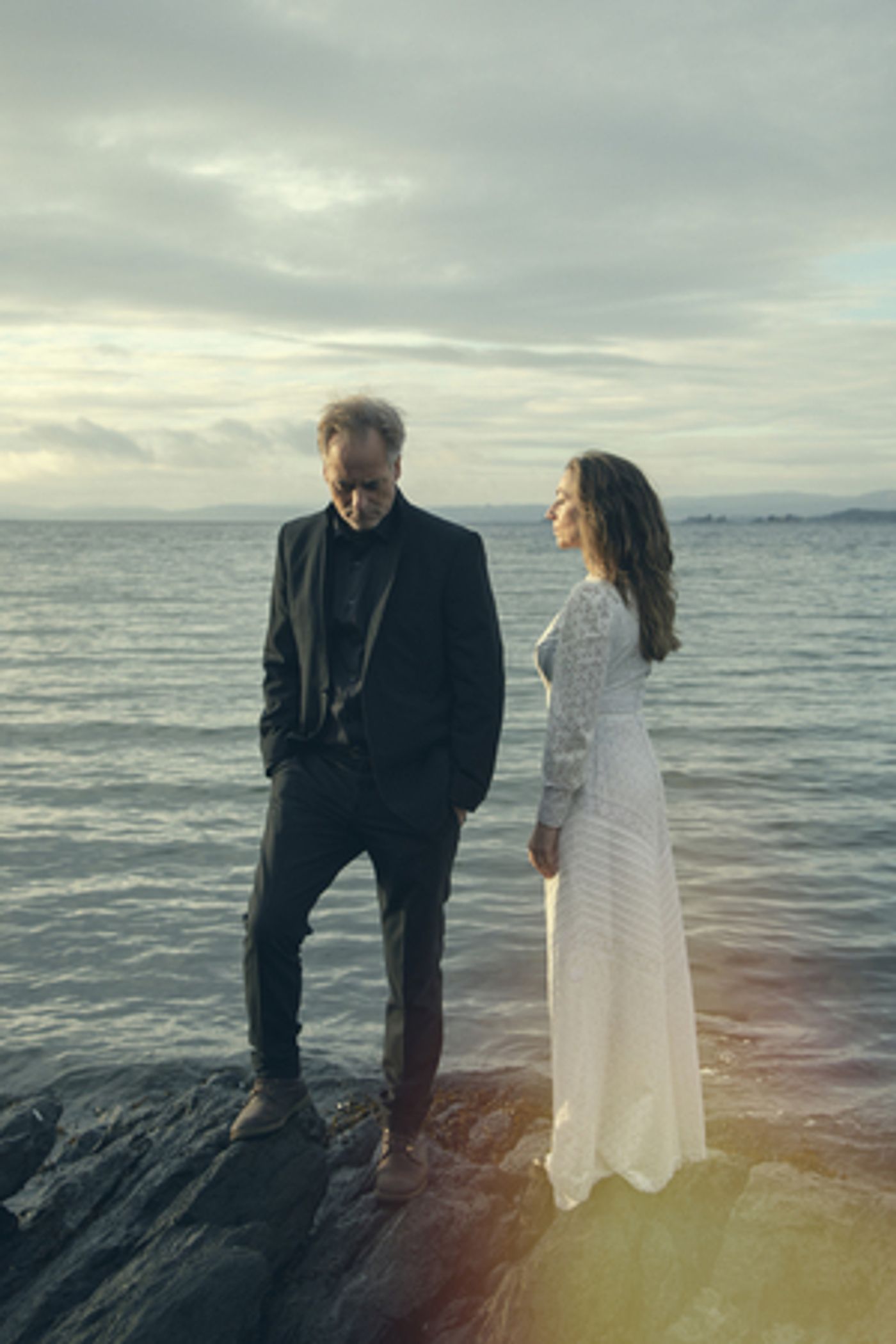Review: WHEN WE DEAD AWAKEN, The Coronet Theatre
The Norwegian Ibsen Company return to London to perform Ibsen's last play.

![]() The Norwegian Ibsen Company return to London with Ibsen's swansong. After bringing us a mesmerising The Lady From The Sea in 2019, When We Dead Awaken fits well in the emotional panorama of the world with the regretful and melancholic atmosphere of its story. At a time when we might have lost hope in the future, the dramatist's last play is bittersweet and nostalgic, profound and captivating. Unfortunately, it's also exceptionally anticlimactic in this instance.
The Norwegian Ibsen Company return to London with Ibsen's swansong. After bringing us a mesmerising The Lady From The Sea in 2019, When We Dead Awaken fits well in the emotional panorama of the world with the regretful and melancholic atmosphere of its story. At a time when we might have lost hope in the future, the dramatist's last play is bittersweet and nostalgic, profound and captivating. Unfortunately, it's also exceptionally anticlimactic in this instance.
It's a desolate, icy winter in Norway - although you'd never say it from the warm set design. Rubek is a famous and celebrated sculptor who's now unhappily married to Maia, younger and as miserable in the marriage as he is. Once they go back to their native country after their travels, Rubek finds that the ghost of love past is lying in wait. Enter Irene, his first muse. He is drawn to her anew, and she seemingly is too. But Irene confesses dark, contrasting feelings towards him and his art, suggesting the sculpture he created of her ended her existence as she knew it and made her spiral. Eventually, just as the wedded couple decides to separate and seek happiness on their own, they meet their deaths on a mountaintop.
While the cold of the country echoes in the hearts of the characters and haunts the very core of the text, it sadly fails to be evident in Kjetil Bang-Hansen's production. This being Ibsen's final project, it's not a surprise that the theme of death imbues it thoroughly. Øystein Røger's Rubek is distressed by the thought of having lost his creative flair after finishing his masterpiece. Consumed by the idea of wasting the last of his career on gimmicky pieces of art that don't mean anything, he's highly unfulfilled by his life and wife.
Ibsen's musings on the meaning of art and what it does to people are frankly beautiful and, today more than ever, they resound across the post-pandemic stage. The sculptor ponders his artistic demise, mourning the loss of years of inspired work and ultimately his soul. While his view is rather romantic, his reflection is both self-centred and self-serving - as is Irene's. His old muse doesn't come off as well-rounded a character as played by Ragnhild Margrethe Gudbrandsen, and the examination of her own desire for a life that was denied to her (Rubek allegedly disappeared once he finished using her for his sculpture) rings hollow and pretentious.
Maria's struggle, on the other hand, is established better and appears more tangible and grounded than the others'. Andrea Bræin Hovig carves her character out exquisitely. While she chases excitement, her husband goes after hasty inspiration, discarding her youth for the afterthought of romantic regret. From insisting on calling it their "house" instead of their "home", she builds the paragon of a young trophy wife whose marriage is filled with empty promises. When James Browne's Ulfhejm comes into her life with the rugged lifestyle of a mountaineering hunter, she's delighted she's finally able to leave her boring spouse dealing with his artistic ghosts.
Ulfhejm's presence comes off as less of an intrusion than what it really is. Although his rough manners clash with Rubek's neat jumper and blazer, and his Irish accent with the latter's Received Pronunciation, against Mayou Trikerioti's set, it's Ulfhejm who looks more at home. The enormous space is left quite bare but for a pile of rubble and a rivulet that runs to the audience. The Coronet's mirroring alcoves are boarded up, boards have been lifted from the stage, and grass is peaking through. It's a wasteland of the soul, a place that's learnt to live with destruction.
The set is an exquisite visual representation of the characters' internal turmoil. The wreckage of their existence takes centrestage in the messy yet somehow elegant assortment of rubbish. Death becomes an allegory for a state of mind and the actors become each other's satellites, orbiting the stack and each other. Rubek flees from Maia every time she makes an attempt at breaching the distance between them, which echoes in Ulfhejm's opposite reaction.
Unlike The Lady From The Sea, which saw the use of English and Norwegian with defined purpose, When We Dead Awaken is mainly spoken in Norwegian with English surtitles. Only Ulfhejm and those who speak to him always switch to English, so it's difficult to attribute any meaning to the difference in language, besides Ulfhejm's presumably being a foreigner here. The rest of the dialogue is in Norwegian, which is a gorgeous opportunity to hear Ibsen's play in its native tongue.
However, the ending is, regrettably, underwhelming. From the almost non-existent role and presence of the nun (here a nurse in sombre clothing) to the rush towards an anticlimactic finish line, this production is, unfortunately, rather flat.
When We Dead Awaken runs at The Coronet Theatre until 2 April.
Photo credit: Szigetvary Zsolt
Reader Reviews
Videos

